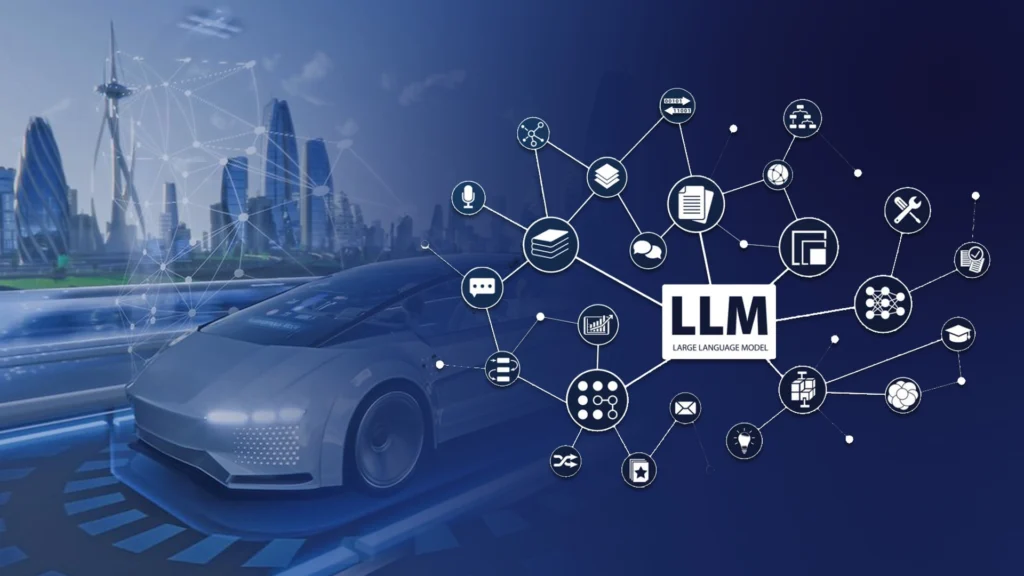We consider Large Language Models (LLMs) to have the potential to significantly enhance test automation in the automotive industry. By leveraging their natural language processing (NLP) capabilities, LLMs can support various aspects of test automation, making processes more efficient, intuitive, and complete. This article explores the innovative use cases of LLMs in automotive test automation.

1. Automated Test Case Generation
Natural Language Test Case Design:
- User Story to Test Case Conversion: LLMs can convert user stories and requirements written in natural language into detailed test cases. For instance, an LLM can read a requirement like “The car should automatically brake when an obstacle is detected within 10 meters” and generate relevant test scenarios and scripts for validating this behavior.
- Behavior-Driven Development (BDD): In BDD frameworks, LLMs can assist in creating Gherkin syntax-based test scenarios from plain language descriptions. This helps bridge the gap between non-technical stakeholders and developers, ensuring that test cases accurately reflect business requirements.
Scenario Generation:
- Edge Case Identification: LLMs can analyze historical test data and documentation to identify and generate edge cases that might not be immediately apparent to human testers. These scenarios are crucial for ensuring the robustness and safety of automotive systems, especially in autonomous vehicles.
- Test Variability: LLMs can create a variety of test scenarios with different parameters, ensuring comprehensive coverage of possible operating conditions. For example, they can generate scenarios for testing vehicle behavior under different weather conditions, road types, and traffic situations.
2. Test Script Maintenance and Optimization
Automated Test Script Updates:
- Code Refactoring: LLMs can analyze changes in the codebase and automatically update affected test scripts. This ensures that test cases are still valid and up-to-date, reducing the manual effort required to maintain test suites.
- Bug Fixes and Enhancements: When a bug is reported or an enhancement is requested, LLMs can suggest modifications to existing test scripts to cover these new cases, streamlining the development and testing cycle.
Optimizing Test Execution:
- Test Prioritization: LLMs can prioritize test cases based on historical data, code changes, and risk assessments. This ensures that the most critical tests are executed first, optimizing the use of testing resources and reducing time-to-market.
- Parallel Execution Planning: LLMs can analyze the dependencies between test cases and suggest optimal parallel execution plans, maximizing the efficiency of test runs in CI/CD pipelines.
3. Intelligent Test Data Management
Synthetic Data Generation:
- Realistic Data Creation: LLMs can generate synthetic data that mimics real-world data for testing purposes. This is particularly useful for privacy-sensitive scenarios where using actual data is not feasible.
- Data Variability: LLMs can create diverse datasets that cover a wide range of inputs, ensuring that automotive systems are tested against various possible scenarios. This helps in validating the robustness and reliability of systems like ADAS and infotainment.
Data Anonymization:
- Sensitive Information Masking: LLMs can assist in anonymizing test data, ensuring that sensitive information is protected while still providing realistic datasets for testing. This is important for compliance with data privacy regulations.
4. Enhanced Documentation and Reporting
Automated Documentation Generation:
- Test Case Documentation: LLMs can generate comprehensive documentation for test cases, including descriptions, prerequisites, steps, and expected outcomes. This documentation is crucial for maintaining clarity and consistency in the testing process.
- Test Run Reports: After test execution, LLMs can create detailed reports that summarize the results, highlight failures, and suggest potential causes and fixes. These reports can be customized to meet the needs of different stakeholders, from engineers to management.
Knowledge Management:
- FAQ and Troubleshooting Guides: LLMs can compile frequently asked questions and troubleshooting guides from historical test data and issue-tracking systems. This aids in the quick resolution of common problems and enhances the overall efficiency of the testing team.
- Best Practices and Standards: By analyzing past projects and industry standards, LLMs can generate best practice guidelines and checklists for various testing activities, ensuring that teams adhere to high-quality standards.
5. Interactive Testing and Debugging
Natural Language Interaction:
- Test Execution Commands: Testers can interact with test automation systems using natural language commands. For example, a tester could say, “Run the regression suite for the braking system,” and the LLM-integrated system would execute the relevant tests.
- Debugging Assistance: LLMs can assist in debugging by interpreting error messages and logs, suggesting potential fixes, and even generating code snippets to address the issues.
Virtual Test Assistants:
- Real-Time Support: LLMs can act as virtual assistants, providing real-time support to testers. They can answer questions, provide guidance on using test tools, and offer suggestions based on the current context.
- Collaboration Facilitation: In a collaborative environment, LLMs can facilitate communication between team members by summarizing discussions, tracking action items, and ensuring that everyone is aligned on the testing objectives.
Conclusion
Large Language Models are poised to revolutionize test automation in the automotive industry by enhancing the creation, maintenance, execution, and analysis of test cases. Their ability to understand and generate natural language, coupled with their capacity for handling large volumes of data, makes them invaluable tools for ensuring the quality, safety, and reliability of modern vehicles. As automotive systems become increasingly complex and interconnected, the role of LLMs in supporting test automation will only grow, driving the industry toward greater efficiency and innovation.
We at Horizon Connect –Digital Intelligence Unit- are dedicated to supporting you in investigating these advanced approaches and finding the right solutions for your specific needs. Together, we can unlock the full potential of LLMs in automotive test automation and pave the way for a smarter, more efficient future in-vehicle testing and development.


